We may earn money or products from the companies mentioned in this post. This means if you click on the link and purchase the item, I will receive a small commission at no extra cost to you ... you're just helping re-supply our family's travel fund.
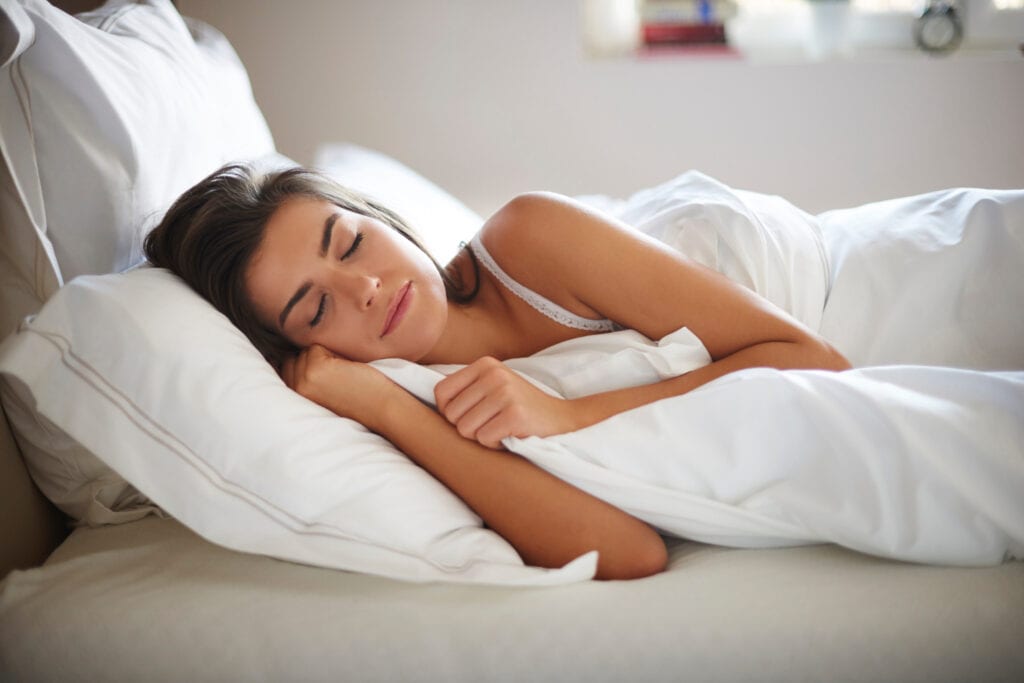
Sleep is often the first thing to wobble when you travel. New beds, late dinners, and unfamiliar sounds can leave you staring at the ceiling. The good news is you can stack the odds in your favor. Small, thoughtful habits reset your body’s cues, help your mind settle, and turn a borrowed room into a place that feels yours. Here’s how to arrive tired but not wrecked, and wake up curious, clear, and ready to enjoy where you are. Pack a little routine, and the nights get easier.
Keep a Consistent Sleep Window
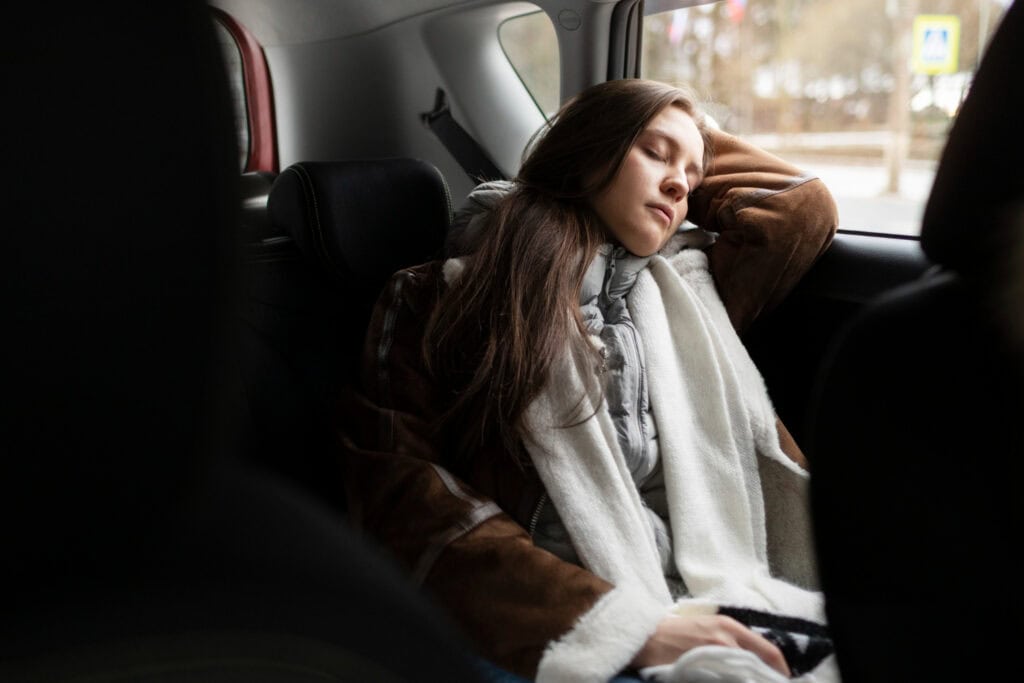
You cannot control every variable on the road, but you can keep your sleep and wake times steady. Pick an eight hour window and aim to hit it within thirty minutes each night. If dinner runs long, protect your wake time and grab a power nap the next afternoon. Routine tells your brain when to dim the lights internally, so even a new mattress feels familiar. Consistency matters more than perfection, and it pays off by day three. Set an alarm for bedtime, not just morning, to protect the habit.
Use Morning Sun to Anchor Your Clock
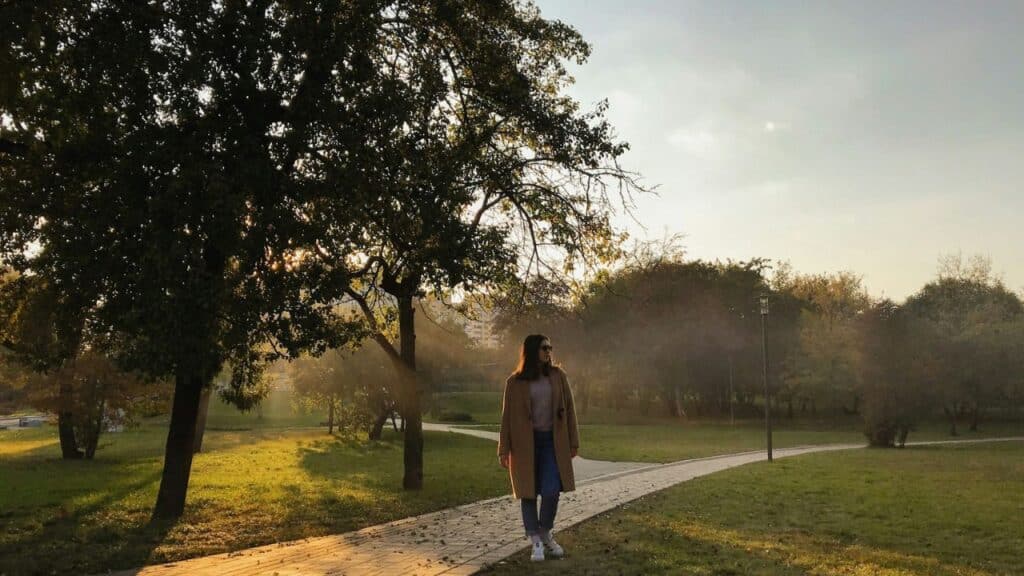
Morning light is the strongest cue your body has. Within an hour of waking, step outside for ten to fifteen minutes, no sunglasses if it is comfortable. The bright spectrum resets your internal clock, lifts mood, and makes it easier to fall asleep at night. If weather or schedule blocks you, sit by a window while you sip coffee. Do it daily for the first few days in a new time zone to reduce jet lag drag. Combine it with a short walk to wake your core temperature and signal that daytime has begun.
Control Light at Night
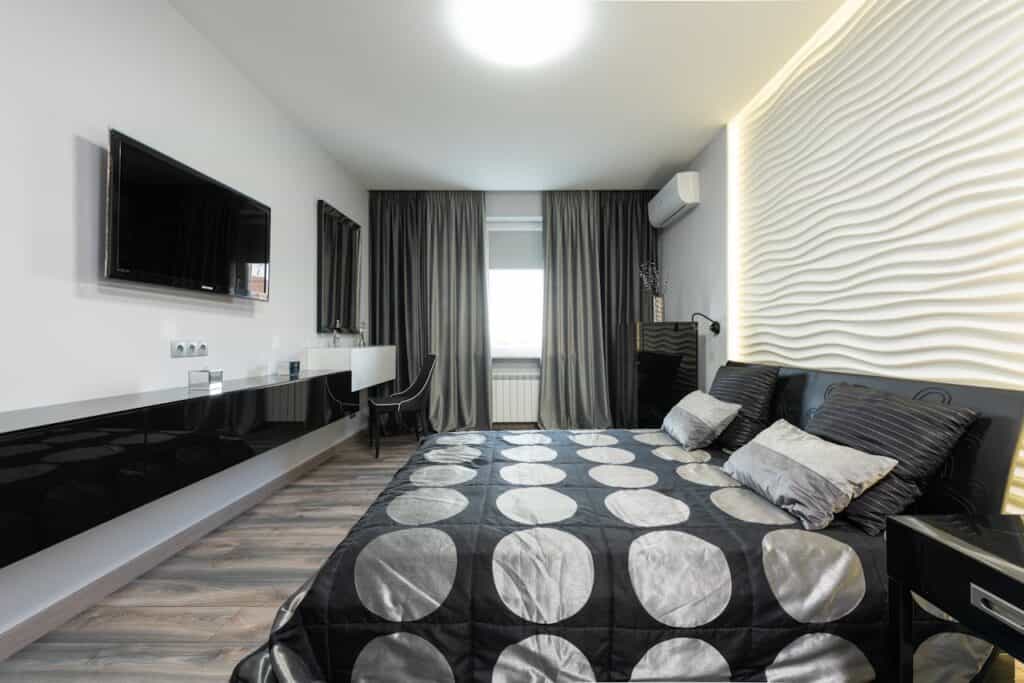
Hotels often leak light from hallways, chargers, and street signs. Black out the room as best you can, clip the curtains with a hanger, and place a card over bright LEDs. If you need to use your phone, switch to night mode and lower brightness. An eye mask solves the rest, and it weighs almost nothing. Darkness boosts melatonin, quiets the racing mind, and helps your body believe it is truly time to sleep. Bring a compact mask in your carry on so you are covered if blackout shades are flimsy.
Time Caffeine and Alcohol Wisely

Coffee keeps you sharp on travel days, but late cups linger. Stop caffeine eight hours before bedtime so adenosine can do its job. Alcohol feels sleepy at first, then fragments your night and cuts the deep stages that restore you. If you want a drink, keep it early, sip water between rounds, and finish dinner with herbal tea. Protecting sleep beats one more espresso, and you will feel the difference the next morning. Set a personal cutoff, write it in your notes, and treat it like a meeting you do not miss.
Create a Simple Wind Down Ritual
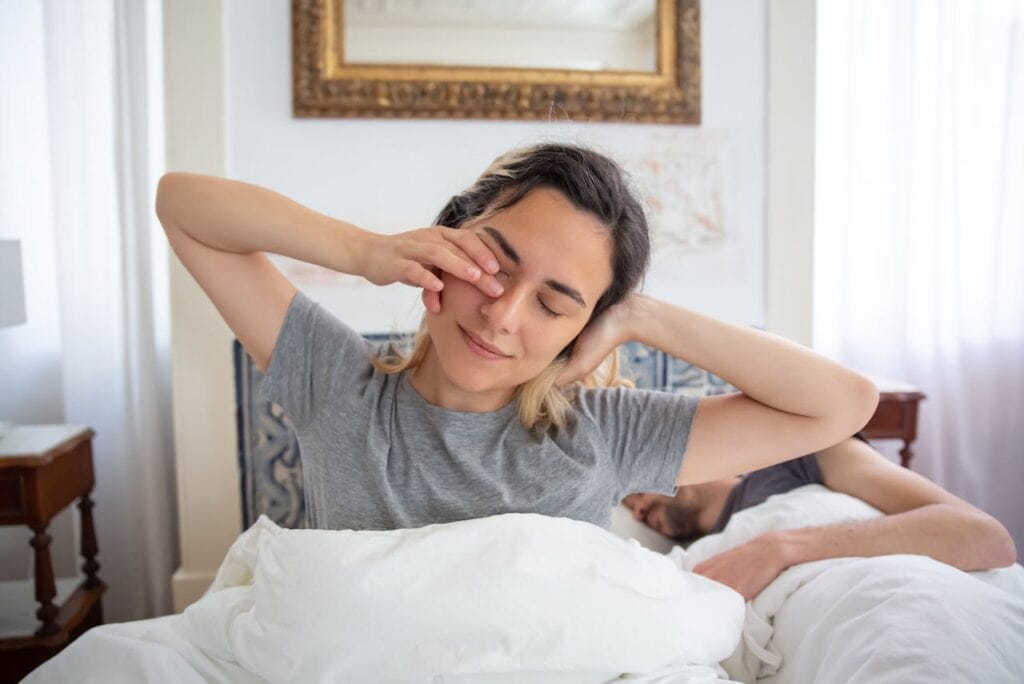
Your brain loves cues. Choose a five to ten minute routine you can repeat anywhere, then run it at the same time each night. Dim the lights, stretch gently, breathe slow, and plan tomorrow on paper so worries leave your head. A warm shower can nudge your temperature downward afterward, which helps you drift off. Keep it consistent for the first three nights in a new place to teach your body the script. The goal is to make bedtime feel predictable, even when everything else is different.
Cool the Room and Tweak Bedding
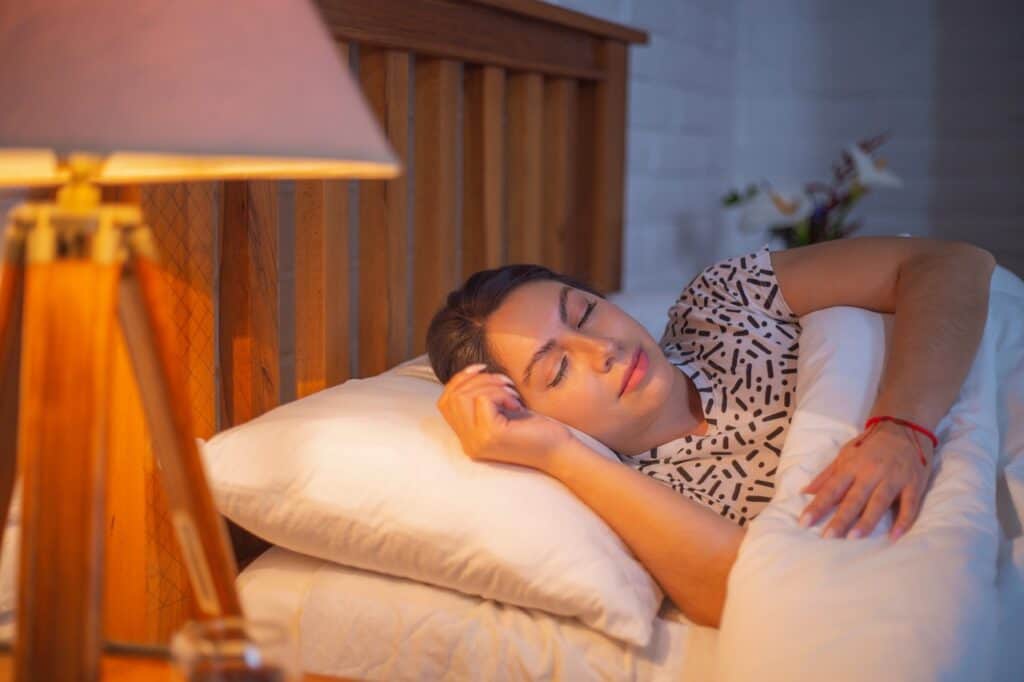
Most people sleep best in a cool room. Set the thermostat near 65 to 68, close heavy curtains, and place a towel at the door to block drafts or noise. Check the duvet weight, since many hotels default to thick covers year round. Ask for a lighter blanket or remove the insert if the cover unzips. If you run cold, layer up with socks and a spare sweater. Comfort is not a luxury here, it is the foundation of recovery. Aim to keep your neck and shoulders relaxed so you are not fighting the pillow all night.
Tame Noise with Layers

Silence is rare in cities and even quieter towns have early trucks and late doors. Pack soft foam earplugs and a small white noise app or travel machine, then use both. The plugs mute sudden peaks, while steady noise smooths the rest. Place your phone face down across the room so alerts do not tempt you. If your room faces traffic, ask to switch floors or to the courtyard. Small changes add up to a calmer night and a kinder morning. Even a running bathroom fan can help if you are without apps or devices.
Move Your Body, but Not Late
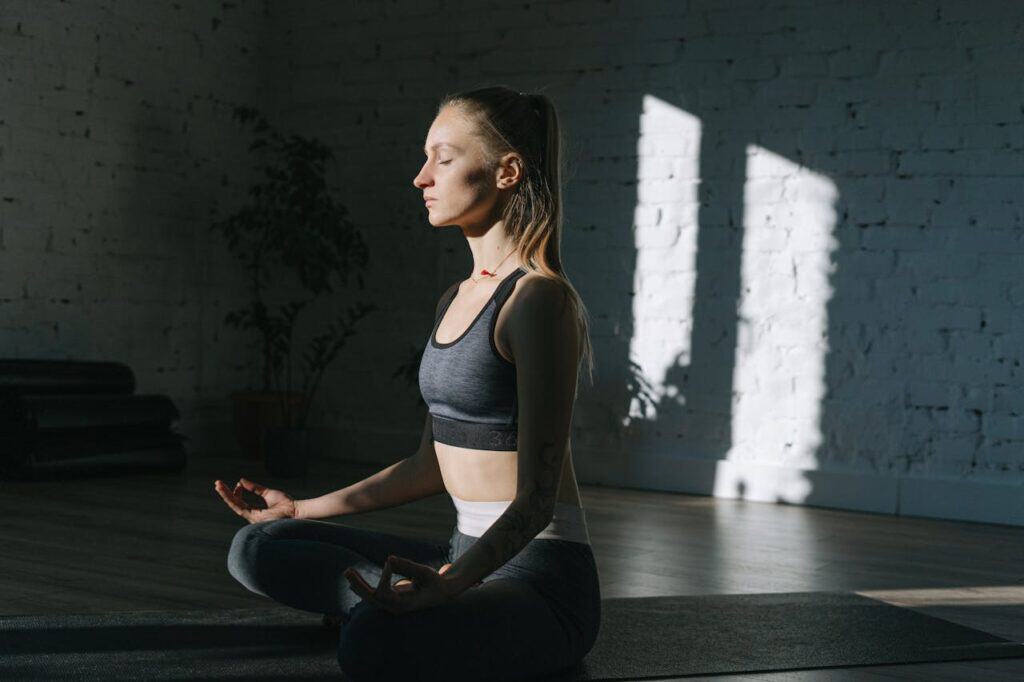
Movement makes sleep deeper. Walk after you land, take the stairs, or add a short bodyweight session to shake off travel stiffness. Aim to finish vigorous exercise three hours before bedtime so your core temperature can fall. If nights are the only time you have, pick a gentle stretch session instead. Morning or early afternoon workouts help anchor your day, boost mood, and reduce restless tossing when the lights go out. Think of movement as a friend to sleep, not a late challenge for your nervous system.
Eat Earlier and Keep It Light

Late heavy meals ask your body to digest when it would rather repair. Try to finish dinner two to three hours before bed, favoring simple proteins, vegetables, and slow carbs. Keep spicy sauces and rich desserts for lunch. If you are hungry later, choose a small snack like yogurt or a banana with nuts. Hydrate through the day, then taper fluids after dinner so you are not up at 2 a.m. for the bathroom. Waking up satisfied and light beats the short thrill of a midnight feast every time.
Shift Gradually Across Time Zones

A little planning softens jet lag. Two or three days before a long flight, move bedtime and wake time by thirty minutes each day toward the new zone. On board, set your watch to the destination and align meals and light exposure as if you are already there. Nap only twenty to thirty minutes on arrival if you must. Stay up until local evening without overdoing caffeine, then use morning sun to lock in the new rhythm. Small shifts add up, and you will feel steadier by day two.
Bring Familiar Cues from Home

Your senses decide how safe a room feels. Pack a travel pillowcase, a small lavender or chamomile roller, and the same eye mask and earplugs you use at home. Play a short playlist you reserve only for bedtime, so your brain links those sounds with sleep. A foldable photo stand or small keepsake can calm racing thoughts on the first night. Familiarity lowers arousal, which makes drifting off in a new space much easier. Think of it as packing a mood, not just gear.